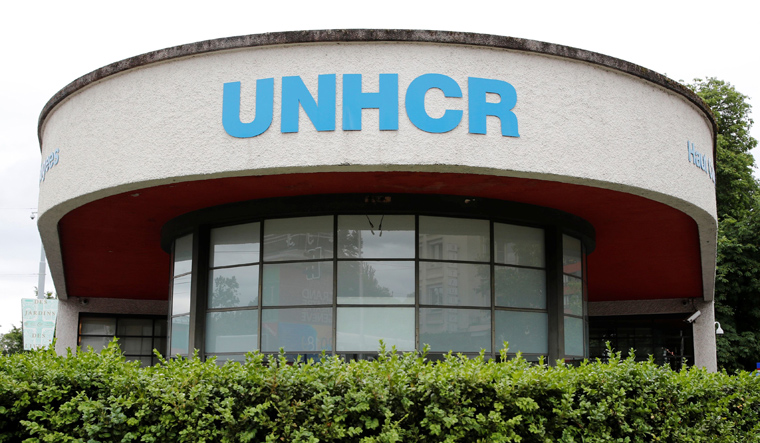UN High Commissioner for Human Rights Michelle Bachelet on Tuesday expressed concern over the restrictions on foreign funding for the Non-Governmental Organisations (NGOs) in India and the arrest of activists in the country.
She appealed to the Indian Government to "safeguard the rights of human rights defenders and NGOs, and their ability to carry out their crucial work on behalf of the many groups they represent.
"India has long had a strong civil society, which has been at the forefront of groundbreaking human rights advocacy within the country and globally," she said in a statement. "But I am concerned that vaguely defined laws are increasingly being used to stifle these voices."
Bachelet specifically cited as "worrying" the use of the Foreign Contribution Regulation Act (FCRA), which prohibits the receipt of foreign funds "for any activities prejudicial to the public interest."
"We have seen some comments by the UN High Commissioner for Human Rights on an issue relating to the Foreign Contribution Regulation Act (FCRA)," Spokesperson in the Ministry of External Affairs Anurag Srivastava said in New Delhi on Tuesday, responding to media queries on comments by Bachelet.
"India is a democratic polity based on the rule of law and an independent judiciary. The framing of laws is obviously a sovereign prerogative. Violations of law, however, cannot be condoned under the pretext of human rights. A more informed view of the matter was expected of a UN body, he said.
Bachelet earlier said the Act, which was adopted in 2010 and was amended last month, has been invoked over the years to "justify an array of highly intrusive measures, ranging from official raids on NGO offices and freezing of bank accounts, to suspension or cancellation of registration, including of civil society organizations that have engaged with UN human rights bodies.
"I am concerned that such actions based on the grounds of vaguely defined 'public interest' leave this law open to abuse, and that it is indeed actually being used to deter or punish NGOs for human rights reporting and advocacy that the authorities perceive as critical in nature, she said.
As per the amended FCRA law, furnishing of Aadhaar numbers by office-bearers of NGOs has become mandatory for registration. The Act also provides for reduction in administrative expenses of any NGO receiving foreign funding, from 50 per cent to 20 per cent of annual funds to ensure spending on their main objectives.
Union Minister of State for Home Nityanand Rai had said in Parliament that the legislation was not against any NGO and was an effort to maintain transparency.
This amendment is in the interest of good NGOs which want to do good work in the country, he had said.
"NGOs are expected to adhere to all our laws including in respect of foreign funding just as they presumably would in other countries including the US and in the European Union," Srivastava said last month.
Bachelet said activists and human rights defenders have also "come under mounting pressure in recent months, particularly because of their engagement in mass protests against the Citizenship Amendment Act that took place across the country earlier this year."
India maintains that the CAA was its "internal matter" and that "no foreign party has any locus standi on issues pertaining to India's sovereignty".
"More than 1,500 people have reportedly been arrested in relation to the protests, with many charged under the Unlawful Activities Prevention Act - a law which has also been widely criticized for its lack of conformity with international human rights standards, she said, adding that charges have also been filed under this law against a number of individuals, including 83-year-old Catholic priest Stan Swamy.
"I urge the Government to ensure that no one else is detained for exercising their rights to freedom of expression and peaceful assembly and to do its utmost, in law and policy, to protect India's robust civil society," she added.








